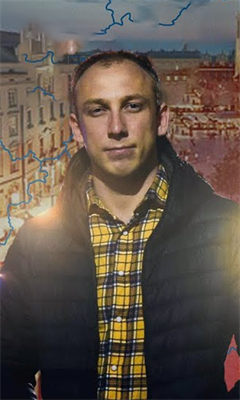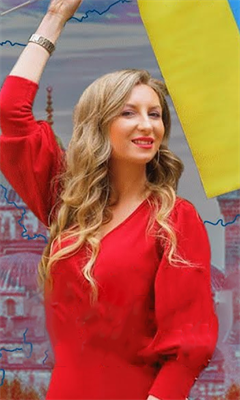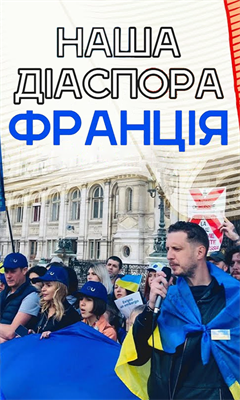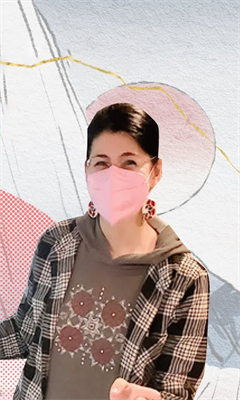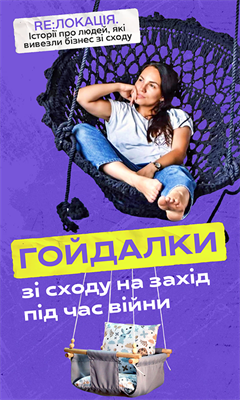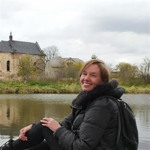During shelling we were moving forward bypassing craters. Dangers of eastern Ukraine seen by a fixer
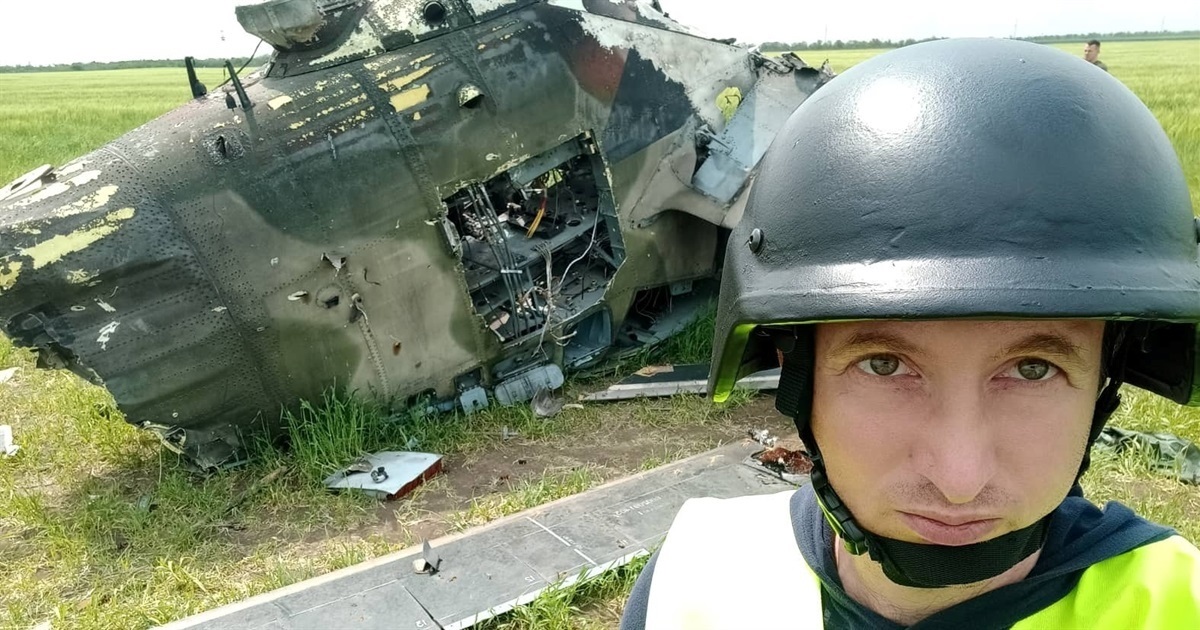
Telling international media the truth about the war
Tell us about yourself. How did you become a fixer?
By coincidence. Last March an acquaintance of mine texted me about journalists from Italy needing help. They were supposed to be transferred from the state border to Odesa. I agreed to help. They then learnt that I am a journalist myself and offered me to be their fixer. I said yes, although I did warn them that I had no relevant experience and that my English left much to be desired. They said they did not have any experience working with fixers, either, and that their English was also far from being perfect. They offered me to start working and said that they would find a way to manage through this. And manage through this they did.
Could you tell us more about the project? What is your own concept of Fixers UA?
We did the project Fixers UA after the first wave of interest in Ukraine began subsiding. We started contemplating our next steps. My colleagues and I got together to join our efforts and improve the work of fixers.
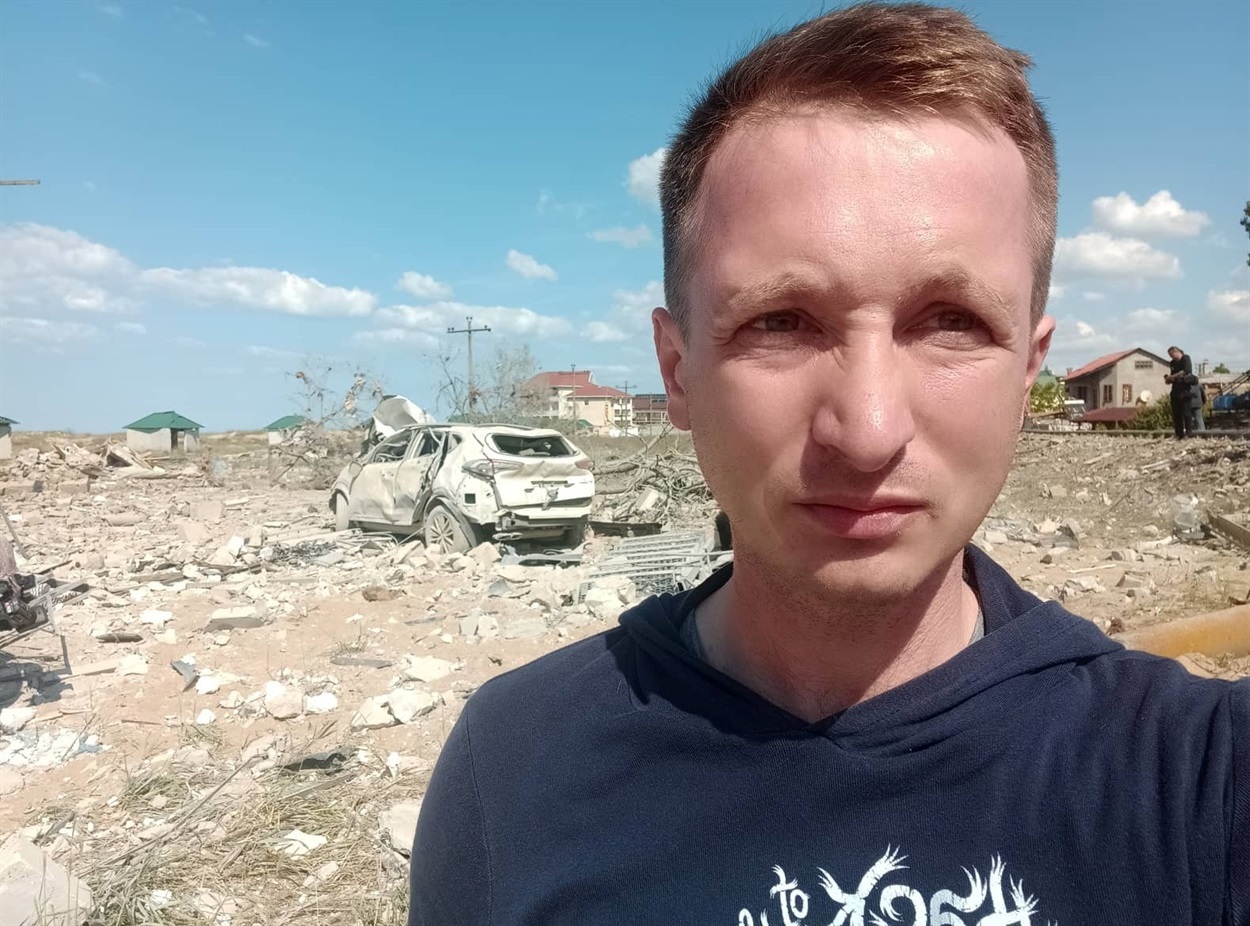
And how can this be brought about? There have to be conditions that would enable foreign media to work. We certainly argued a lot about what exactly we would be doing, about what our focus would be on, especially since the idea of fixing is not novel. Fixers have been active in Ukraine since at least 2014. It’s just their number has grown since active hostilities began. We decided to bet on the reliability and the comprehensive nature of our services.
We consider it an advantage to be able to sign an agreement about providing such services, since in most cases the relationships between fixers and international media are based on mutual trust. There is quite a significant leeway for those willing to go for breach of trust.
Comprehensiveness is also important as a fixer can be an interpreter, driver as well as have good administrative skills at the same time. Each of us has their own strengths and weaknesses. However, together we stand the chance of solving all issues.
Also, we launched platforms publishing our own content. This was Fixers UA page on Facebook and a channel on Telegram Ukrainian fixers inform on which we publish our own photos and videos from different scenes of the war. Our colleagues’ materials are also published there with their permission, of course. We agreed on a particular format of writing short titles in Ukrainian and English since people from abroad also read us. Speaking of the format, production of our own materials both in the text and video format is one of the options that Fixers UA offers its audience. We’ve got professional journalists on our team covering numerous stories from Ukraine.
Our frontline jokes are becoming increasingly cynical and macabre
You published materials following a missile strike on the town of Chasiv Yar in the Donetsk oblast. What does a fixer feel while documenting such a tragedy?
I was not in Chasiv Yar then. One of our colleagues has shared the material with us. Our colleagues have also been to Serhiivka, Kremenchuk, and many other locations (these cities have also been subjected to Russian missile strikes which have claimed lives of many civilians — editor’s note). In terms of feelings it’s extremely hard to take. Nevertheless, some fixers have a background in journalism. Journalists tend to have thick skin, which is our defensive reaction, our job conditioning if you like. At times one has to be a bit cynical in order to document tragic events. Of course, it is important not to lose the human face. To see and show others the truth about this war is our job. Someone has to do it.
You have visited Druzhkivka, Siversk, Kramatorsk… What impression did eastern Ukraine make on you?
East of Ukraine is a tough region. The atmosphere is different here and people are taciturn. My impressions? Even under shelling people continue to work and create conditions for peaceful life. Sometimes they do that in silence. However, with cannonade and lawn mower producing sound at the same time, you feel a sort of dissonance. Clean squares, trimmed beds of roses, trolleybuses running about the town… In the relatively small town of Druzhkivka trams are still working!
In one of the villages located almost on the frontline we have found a shop that is still working. Its shop assistant said, "This shop is visited by pensioners who have made a firm decision to stay. They say that if this shop is still working, things are not that bad". Certainly I would prefer to have these people evacuated to a safer place.
What was not mentioned in your materials?
Some everyday things that may turn into a real quest in Donbas. For example, we took a cameraman to Slovyansk so that he could take an X-ray test since there was a suspicion of pneumonia. Going to Slovyansk to take an X-ray test sounds surreal. The cameraman was offered to be hospitalized. He was told that the hospital in Slovyansk offered good treatment for its patients. At the same time we heard sounds of shelling outside. I would not have been surprised, had they offered him to stay at a recreation center somewhere in Soledar, for example.
Tell me about Kramatorsk. On the Fixers UA page it was referred to as a ghost city. Why so? What is so striking about it?
Emptiness in the city. There are scarcely any people on the streets. Windows are often filled with OSB panels or sandbags. When you stand in the huge and sunny city square with nobody around, the atmosphere is quite creepy. You head to a café and there you see people lining up. The same goes for Slovyansk. Only two coffee shops have not stopped working in the city. People drink coffee while socializing, cracking some jokes and laughing. However, their jokes are becoming more cynical and macabre. How would I describe Slovyansk? This city reminds me of a stone that is small but tough and steadfast. Bakhmut is quite similar, steady as a rock.
I have been working as a journalist for 22 years and as a fixer only for 4-odd months
Have you ever come under fire while working?
Don’t say a word to my wife! (laughs). Yes, I have, but it was not that bad. When we were heading for military units, shells were landing on the nearby fields. Also, during shelling in Bakhmut we were forced to move forward bypassing craters. Well, this pales in comparison to the work of a journalist in the thick of the combat zone. It’s peanuts here.
In your post about Bakhmut and Soledar you mentioned that the locals blame journalists for shelling. Was it a one-time incident or are these sentiments shared by most people in the Donetsk region? Have there been similar cases in other regions?
It was in Bakhmut that we were nearly exposed to a missile strike. Afterwards we returned to that place and saw a 98-feet crater in diameter that was gradually being filled with water leaking from destroyed sewer lines. What are journalists supposed to do in this case? Of course, we had to pull ourselves together and start shooting. Well, we started working and the locals ran up to us saying, "How come you have learned so fast about the strike? You have been informed! You are the spotters!". No reasonable explanations would leave them satisfied. People were in shock, we were in shock, everyone was shouting. The atmosphere was quite charged. Surely these are not one-time cases.
We have experienced something similar in one of the towns located in the Kryvyi Rih rayon. An old taxi driver was pestering us. He wanted to expose us. Afterwards, we were told by local law enforcement officers who check people’s IDs at checkpoints that there had been cases of sabotage and reconnaissance groups passing themselves off as journalists. I know no further details, so please don’t keep asking me. We tried to leave checkpoints as quickly as possible so as not to make anyone nervous. Relationships between Ukrainian society and journalists is a massive topic for discussion. As a rule, the majority of Ukrainians think they know who journalists are and what they are supposed to do. However, not always does such a concept have anything in common with reality.
What ethical principles do you follow working as a fixer and a journalist? Do you feel bound to adhere to the code of conduct for journalists?
In my case I follow the same ethical principles as other journalists do. I have been exercising this profession for 22 years, however, I have been working as a fixer for 4-odd months. A fixer is responsible not only for themselves, but also for those whom they accompany. The same goes for information support.
This is a twofold task. All fixers are forced to daily tread on the razor’s end in terms of ethics. You can decide against publishing some material, but how can you expect others to do the same? This discussion could go on and on but in general, the main principle which I stick to now is "do no harm".
One more thing — as a journalist and fixer I feel obliged to follow the journalist code of conduct. But… Not all fixers are journalists, not all of them have such a background, which is why my case cannot be used as an example.
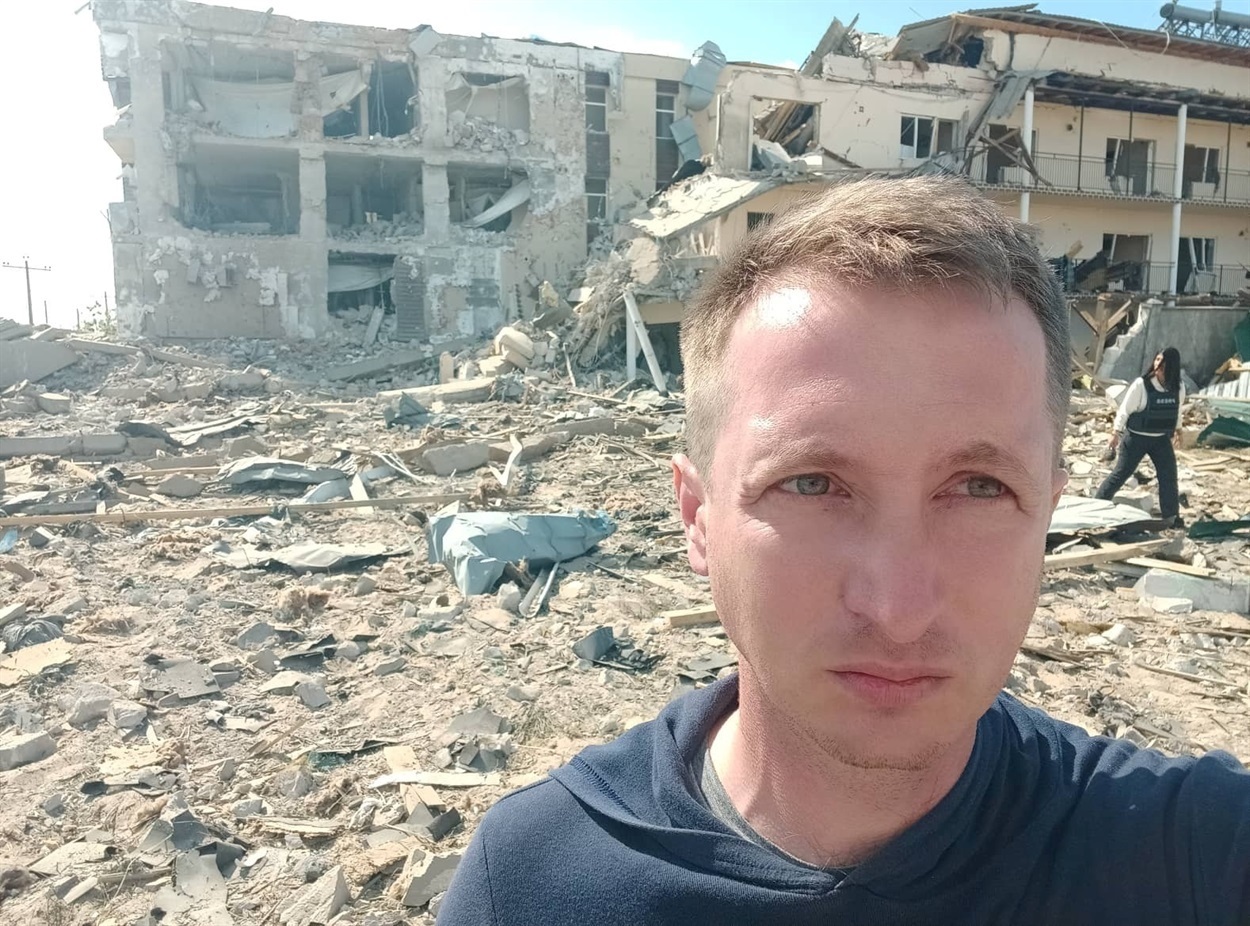
Is there any story that has left the most indelible imprint on your mind during your recent trips to the East?
I do remember the story of a SES guy (State Emergency Service — translator’s note). Other rescuers and I were waiting for another group of evacuees, and he told me that prior to the war he had been looking after an elderly couple, a woman and her bed-ridden husband. He told me he would buy them food every month but after the war broke out the contact with them was lost.
"The other day I got a call from that elderly woman, her name is Svitlana. The first thought that crossed my mind was that something terrible had happened. I pick up the phone and she tells me, "Things are great! My husband and I are in Paris. We are being taken care of. Just wanted you to know". What struck me was that a person who is well over 80 and whose income is quite modest by any standards managed to leave the country together with her bed-ridden husband. The point is — if you search for opportunities to leave the country and settle down abroad, you can eventually find them’, said my interlocutor from SES. He also urged people to evacuate because earlier on that very day police officers and he had evacuated in an armored vehicle a couple who had already evacuated from the region but decided to return to their home in the town of Raihorodok. Their home looks like a sieve now.
Have you covered the Luhansk region in your reports? If so, under what circumstances?
No, I have not been there. One of my foreign colleagues had gone into the thick of hostilities in the city of Severodonetsk before it was occupied by Russians. We were in the Zaporizhzhia oblast at that time close to the village of Orikhove and to the frontline. We were interviewing the locals. Then all of a sudden we heard a loud thud, something whooshed past us and landed onto someone’s plot of land. We then agreed that we did not want to visit Severodonetsk. The developments there were really dangerous.
We talked to people who suffered from shelling in Lysychansk. They told us horrendous stories. At first people say that they have no place to go since all their property is here. They continue living in their homes, trying to carry on following their routine. They are then taken to hospital. Not only do they lose their property, they also lose their health.
Have you visited the frontline positions in the Donetsk and Luhansk regions? If yes, what is the mood of our soldiers defending Ukraine?
We have visited our troops’ positions near Slovyansk. Our soldiers send their greetings. They say we should not be panicking. They are well provided for. They laughed a lot and treated us to brewed coffee with milk. They say all they need is heavy military equipment. Everything else has been taken care of.
What do you feel once you return to Odesa from the east of Ukraine?
First of all, I return with new experience, thinking about how it can be put to use in the future. I would say I feel positive. After all, I can once again be happy about staying alive.



